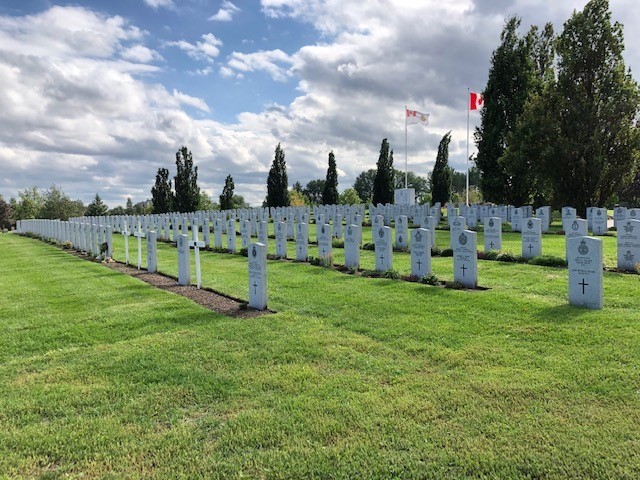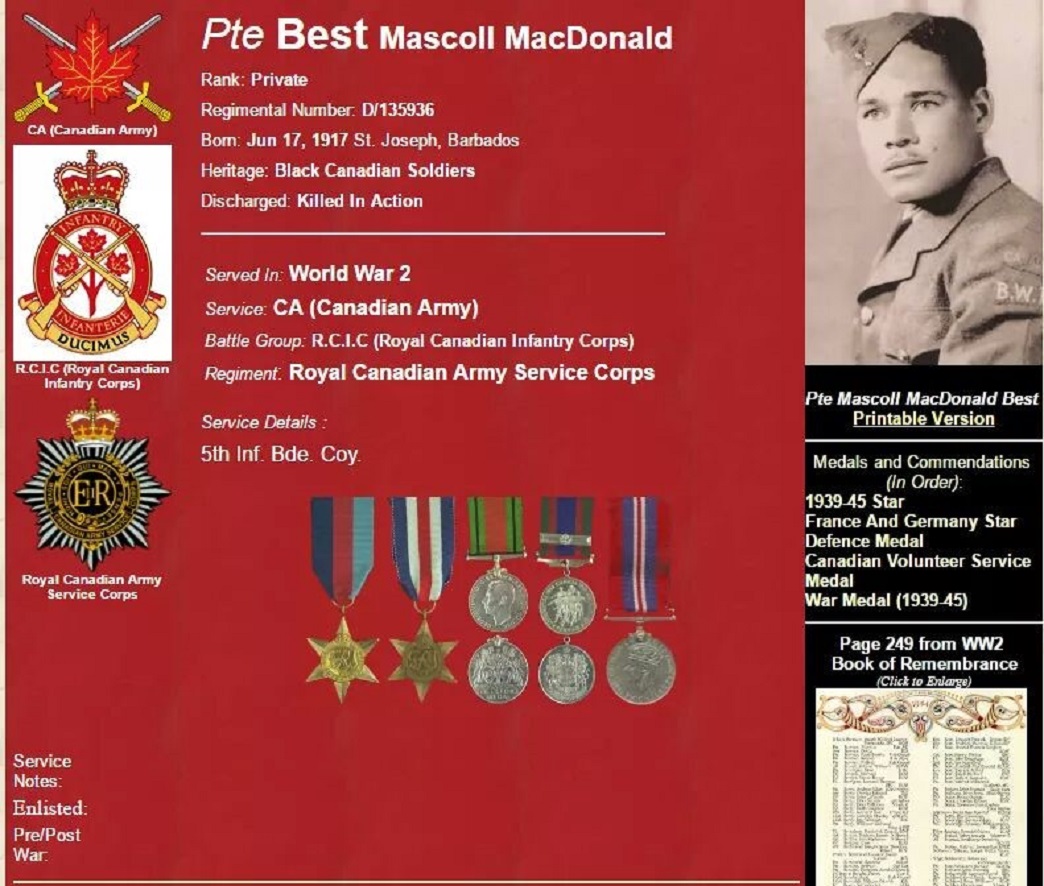
Remembering that newcomers to Canada have also fought beside their Indigenous and Canadian-born consoeurs and confreres for this country
From Reflection and Remembrance to Building and Strengthening the Canadian Mosaic
Throughout Canada’s history, new and first-generation Canadians have fought for their adoptive homeland. During the First, and Second World War, of the hundreds of thousands who enlisted to fight, many were from Central and Eastern Europe, the West Indies and Asia. All of whom chose to fight for a nation that had yet to fully embrace their presence. This reality is exemplified through the hundreds of Chinese Canadians who fought for Canada yet were denied the right to vote until 1947, and through Black and Chinese veterans who were routinely denied service or work due to the colour of their skin.
On Remembrance Day, we reflect on the sacrifices made in our name by Canadian soldiers. It too is a day where Canadians reflect on the horror that is war, and the lasting impact it has on our veterans and their families. Honouring the collective sacrifice Canadians have made at war is traditionally done together. We lay wreaths to commemorate those lost, we gather in school assemblies, or at our local cenotaph. This year, we remember apart. Yet, our social distancing remains a collective act. We have drastically altered our day to day lives to fight the community-spread of Covid-19 in much the same way we adopted rationing of food and clothing during the Second World War. Pandemics, like war, offer a stark reminder that we Canadians are all in this together, and that those who fight for our collective health and freedom should rightly be honoured for their sacrifice.

Private Mascoll MacDonald Best, from the West Indian country of Barbados, fought alongside Canadian troops in Europe during WWII. He died in service to Canada. Photo courtesy of Richard Best.
As we remember, we must also act. We as Canadians plugged into the N4 network must be cognizant of the part we play in our collective project called Canada. As many of our newcomers know too well, war is not a thing of the past. As we know from our battle against Covid-19, the necessity of collective action is ever present as well. Today, our world is rife with uncertainty and we continue to see a rise in people being forcibly displaced from their homes. In this context, we must approach our work knowing that the new Canadians we welcome may one day be fighting for us, as they have since our nation’s inception. So, we must fight to ensure they are welcomed and integrated into Canada with open arms, because we are all in this together.
From the excerpts below you can learn more about our veterans from ethnic and racialized minority backgrounds:
The Memory Project – Part of Historica Canada, the makers of ‘Heritage Minutes’
thememoryproject.com
Today, Toronto is the most multicultural city in the world, but in the 1940s it remained commonplace for racialized minorities to be denied service, as depicted in this excerpt from George Carter’s story in the Memory Project: “…you walk up Bay Street with your jacket on and you go in somewhere to have a drink together. And the guy said: ‘Well, we don’t ordinarily have colored people in here and so forth.’…”
The Canadian Historical Association - John Herd Thompson’s “Ethnic Minorities During Two World Wars”
The internment of Japanese Canadians during the Second World War is common knowledge; it is lesser known that the same strains of nativism and bigotry led to the internment of Canadians of Eastern European descent during the First World War. Herd Thompson’s writing on our history of bigotry towards minority communities during the first half of the 20th century is a reminder that nativist sentiments towards new immigrants is endemic in Canadian culture.“Their (eastern European immigrants placed in internment camps during the First World War) individual files list many reasons for internment. Fewer than a third were actually enemy reservists; others were arrested for failing to register, for travelling without permission, for “using intemperate language”, for acting in a “very suspicious manner”, for being “of shiftless character”, or simply being “undesirable”. Six Ukrainians were interned for lying about their country of birth in order to enlist!”
Collin Smith, Carleton University Student
Comments
Login to Post a CommentNo login? Please enter your details below to continue.


